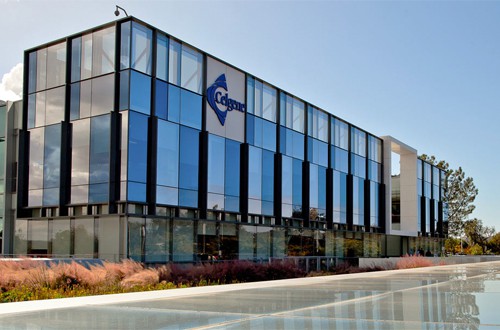
After a turbulent development, Celgene has finally claimed FDA approval for Inrebic, its new drug for rare bone marrow disorder myelofibrosis.
Inrebic (fedratinib) is the second JAK inhibitor to be approved for myelofibrosis since Incyte’s Jakafi (ruxolitinib) was cleared by the FDA in 2011, and the first new treatment for the disorder in the US in nearly a decade, according to the company.
Some analysts think Inrebic could become a $1bn product for myelofibrosis, despite a black-box warning on its label for a serious and life-threatening brain reaction – Wernicke’s encephalopathy – that was seen in a little over 1% of patients treated with the drug in trials.
That would be good news for Bristol-Myers Squibb, which is in the throes of a $74bn merger with Celgene. The merger is intended to counteract a slowdown in its cancer business and create a combined company with an enhanced pipeline and improved sales growth.
Fedratinib was one of the late-stage development programmes highlighted by BMS when the merger was announced in January, although others – such as multiple sclerosis drug ozanimod and CAR-T cancer therapies – are thought to have greater sales potential.
Myelofibrosis patient group MPN Advocacy and Education International tweeted that the approval was “great news” and that the patient community “has waited a long time for more than one treatment option”.
Nevertheless, some market observers think Inrebic may struggle to win significant market share from Jakafi because of the encephalopathy issue and predict sales could be pegged back to $500m or less.
The FDA says myelofibrosis is a chronic disorder where scar tissue forms in the bone marrow and the production of the blood cells moves from the bone marrow to the spleen and liver, causing organ enlargement. The disease can cause extreme fatigue, shortness of breath, pain below the ribs, fever, night sweats, itching and bone pain.
JAK1/2 inhibitor Jakafi is currently the only FDA-approved drug for myelofibrosis, and brought in $1.4bn in sales last year for Incyte in that indication as well as polycythemia vera and acute graft-versus-host disease (GVHD).
The approval of Inrebic – a selective JAK2 inhibitor – means that Celgene can start to get a return on its $1.1bn upfront acquisition of Impact Biomedicines, which gave it rights to fedratinib last year. That deal is worth up to $7bn but is weighted to fedratinib’s commercial performance, with $1.4bn tied to regulatory approvals in myelofibrosis and other indications.
Impact was originally formed in 2016 after the acquisition of the rights to fedratinib from Sanofi, which had decided to abandon the drug over its link to encephalopathy.
The approval is the latest in a string of regulatory wins for Celgene, coming after approval of a combination of Revlimid (lenalidomide) and Roche’s Rituxan (rituximab) – known as the R2 regimen – as a second-line treatment for lymphoma, and a green light for Otezla (apremilast) for Behcet’s disease.
Otezla has to be offloaded by BMS and Celgene to get their merger through antitrust approval, but the new approval increases the value of the asset.




